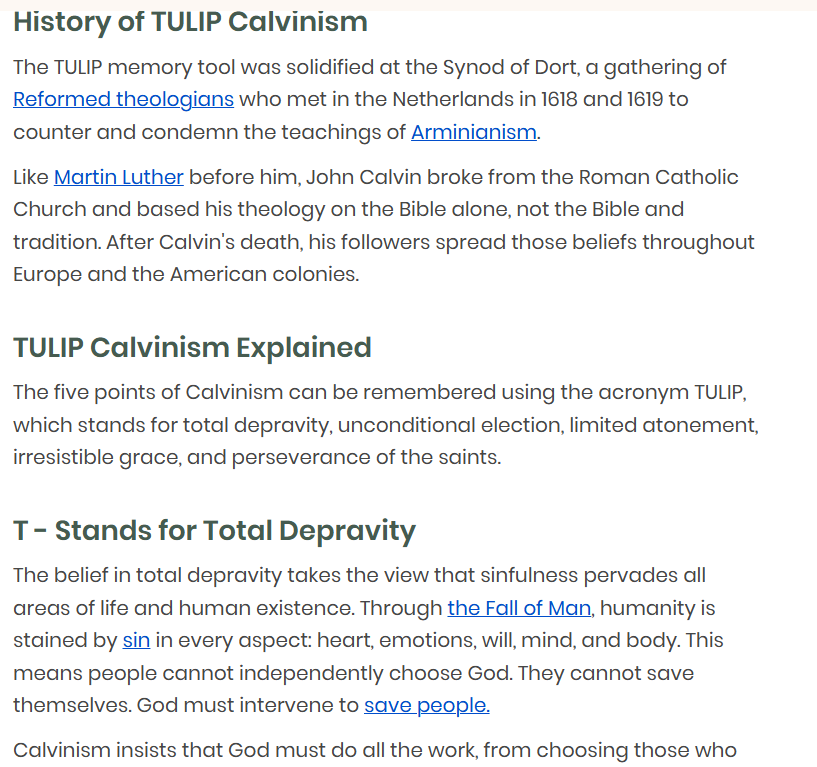
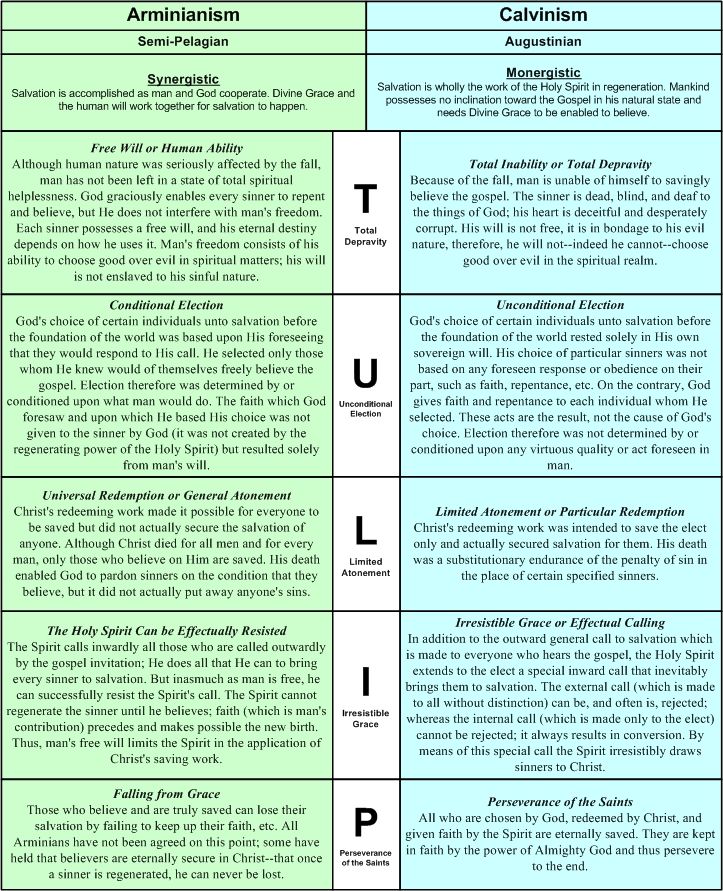


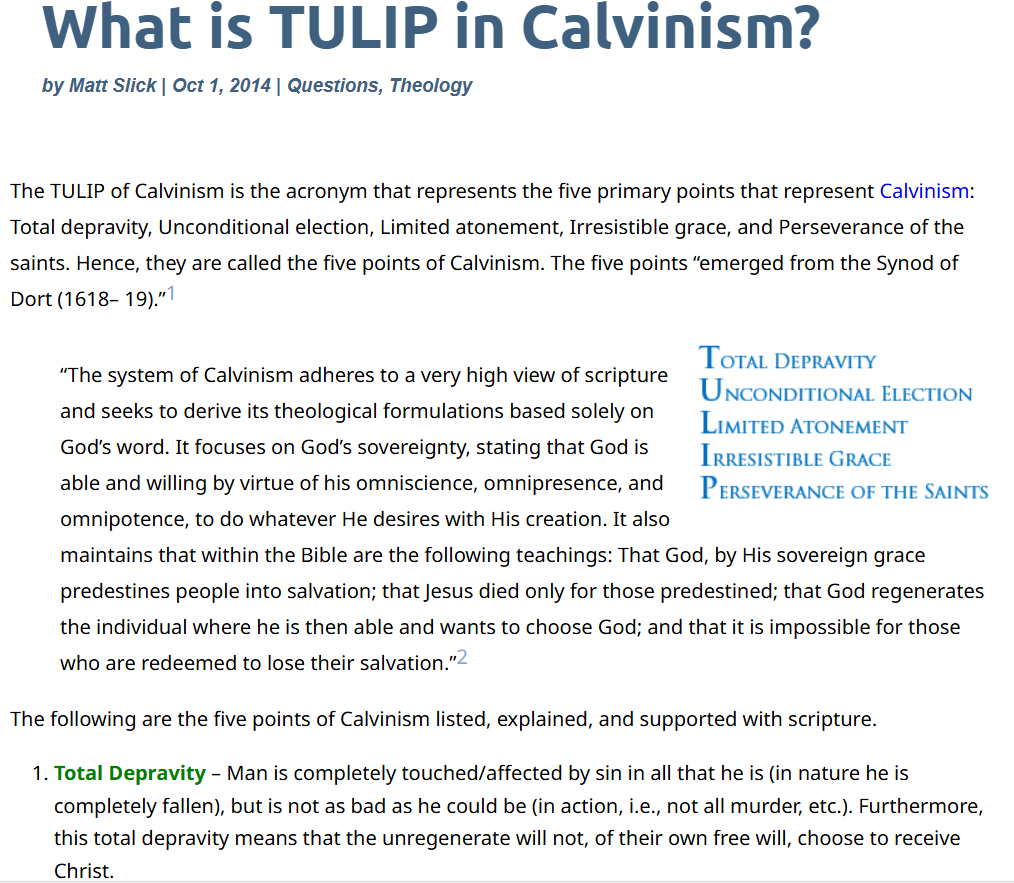
The TULIP of Calvinism is the acronym that represents the five primary points that represent Calvinism: Total depravity, Unconditional election, Limited atonement, Irresistible grace, and Perseverance of the saints. Hence, they are called the five points of Calvinism. The five points “emerged from the Synod of Dort (1618– 19)
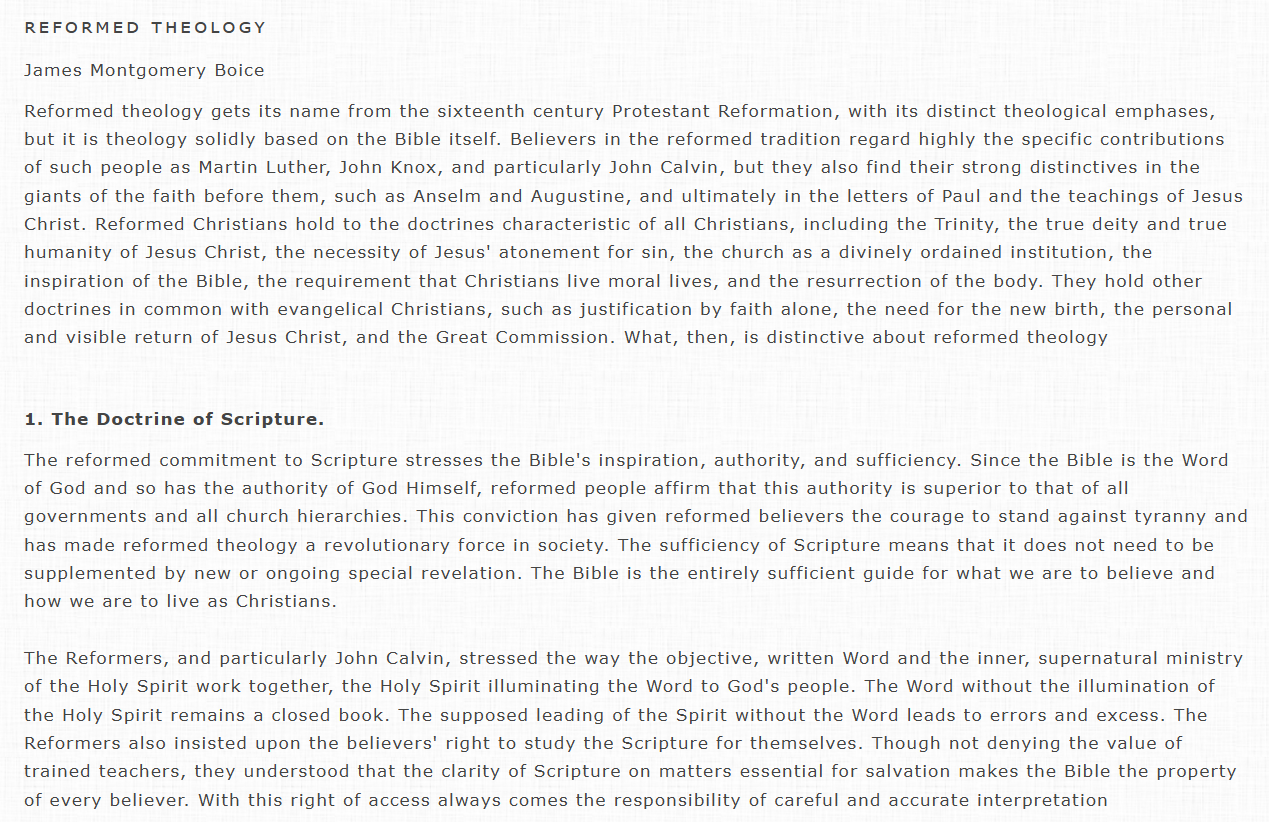
Reformed theology gets its name from the sixteenth century Protestant Reformation, with its distinct theological emphases, but it is theology solidly based on the Bible itself. Believers in the reformed tradition regard highly the specific contributions of such people as Martin Luther, John Knox, and particularly John Calvin, but they also find their strong distinctives in the giants of the faith before them, such as Anselm and Augustine, and ultimately in the letters of Paul and the teachings of Jesus Christ
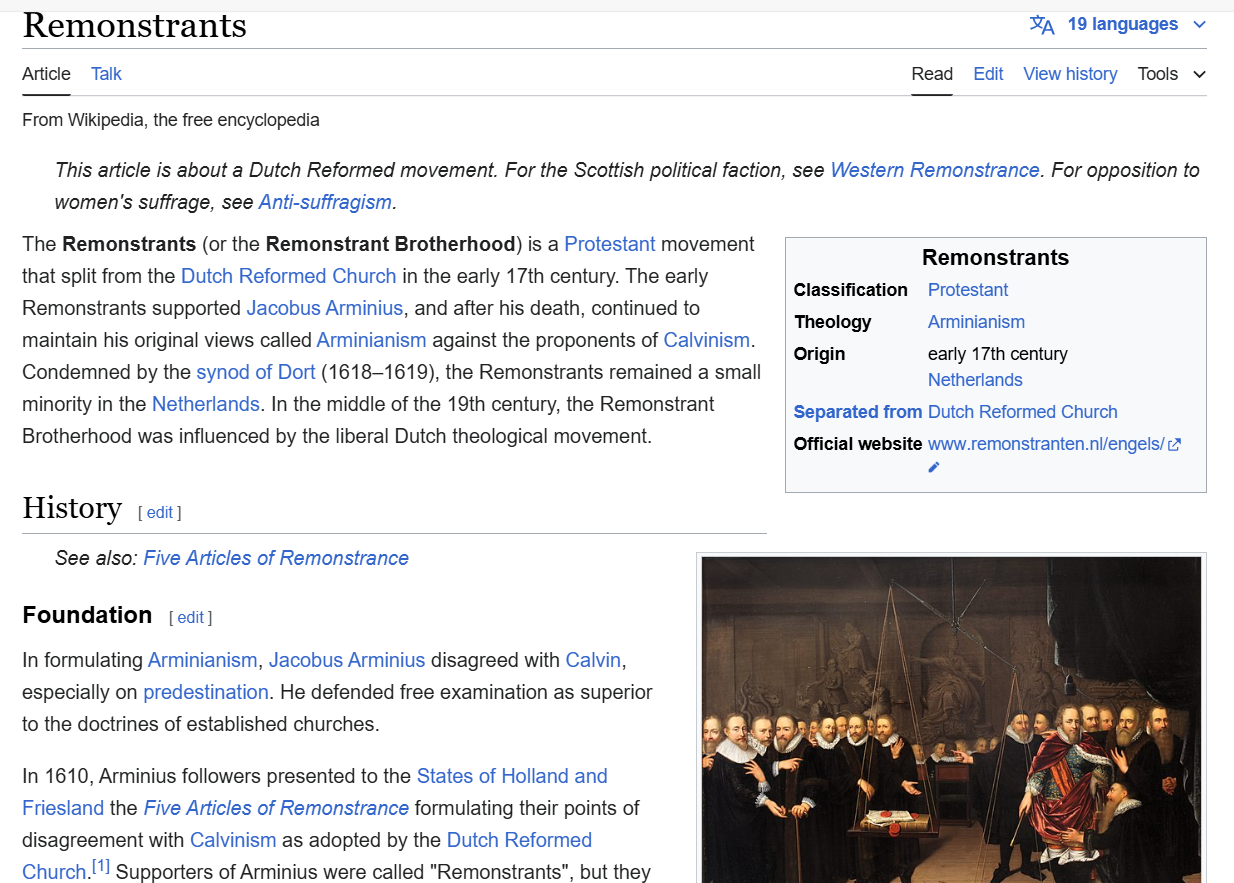
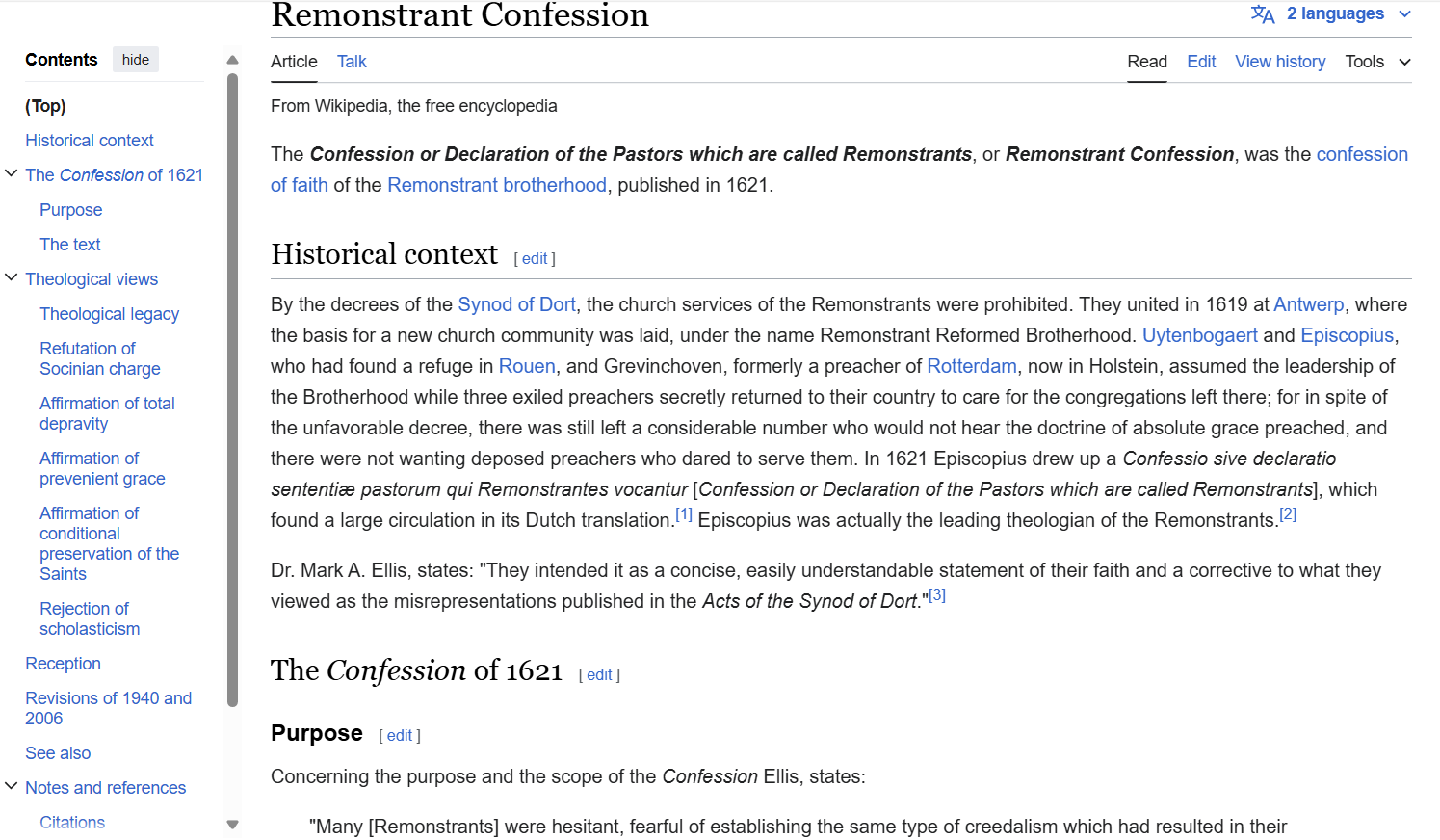
Remonstrant Confession - Wikipedia
The Remonstrant Confession or literally the Confession or Declaration of the Remonstrant Pastors refers to the confession of faith of the Remonstrant brotherhood, published in 1621
By the decrees of the Synod of Dort, the church services of the Remonstrants were prohibited. They united in 1619 at Antwerp, where the basis for a new church community was laid, under the name Remonstrant Reformed Brotherhood. Uytenbogaert and Episcopius, who had found a refuge in Rouen, and Grevinchoven, formerly a preacher of Rotterdam, now in Holstein, assumed the leadership of the Brotherhood while three exiled preachers secretly returned to their country to care for the congregations left there; for in spite of the unfavorable decree, there was still left a considerable number who would not hear the doctrine of absolute grace preached, and there were not wanting deposed preachers who dared to serve them. In 1621 Episcopius drew up a Confessio sive declaratio sententiæ pastorum qui Remonstrantes vocantur [Confession or Declaration of the Remonstrant Pastors], which found a large circulation in its Dutch translation.[1] Episcopius was actually the leading theologian of the Remonstrants.[2]
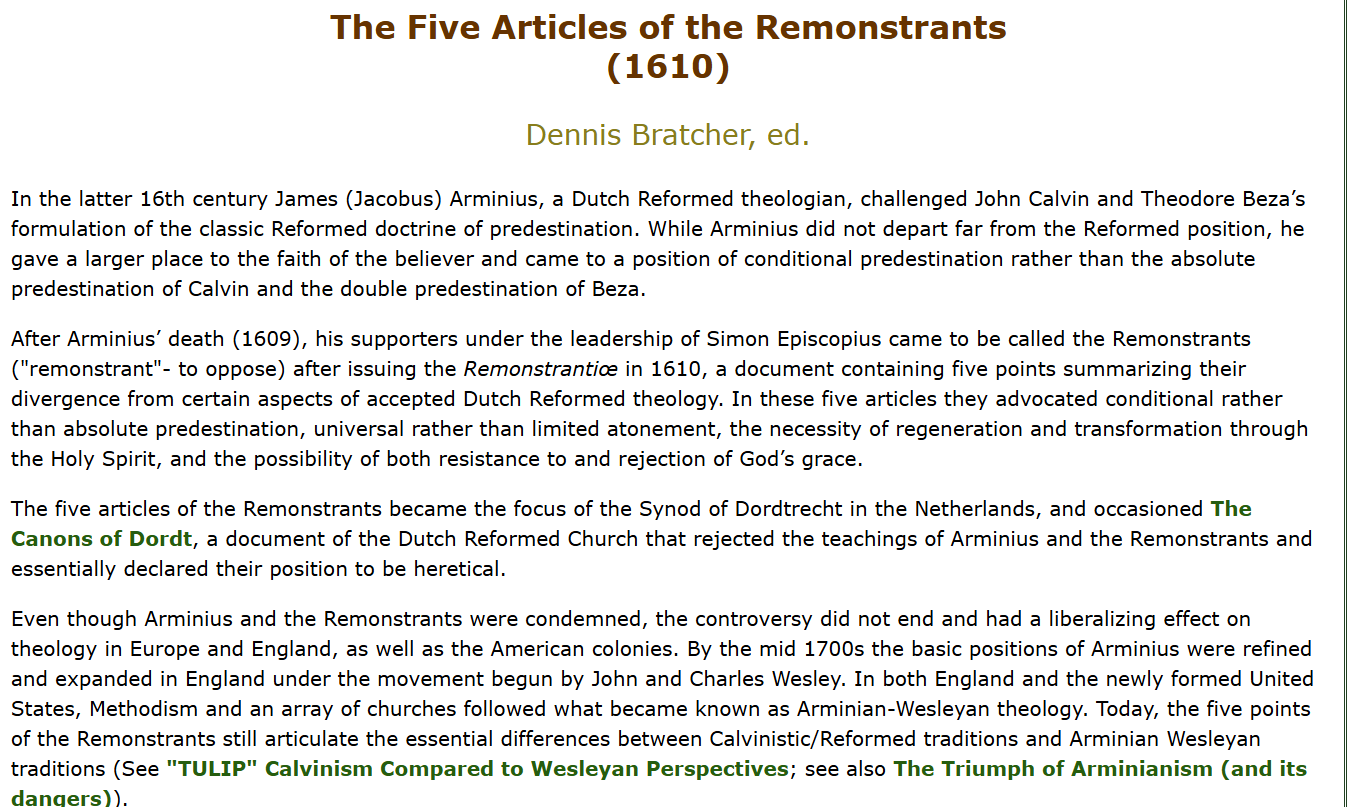
The Five Articles of the Remonstrants (1610) (crivoice.org)
In the latter 16th century James (Jacobus) Arminius, a Dutch Reformed theologian, challenged John Calvin and Theodore Beza’s formulation of the classic Reformed doctrine of predestination. While Arminius did not depart far from the Reformed position, he gave a larger place to the faith of the believer and came to a position of conditional predestination rather than the absolute predestination of Calvin and the double predestination of Beza.